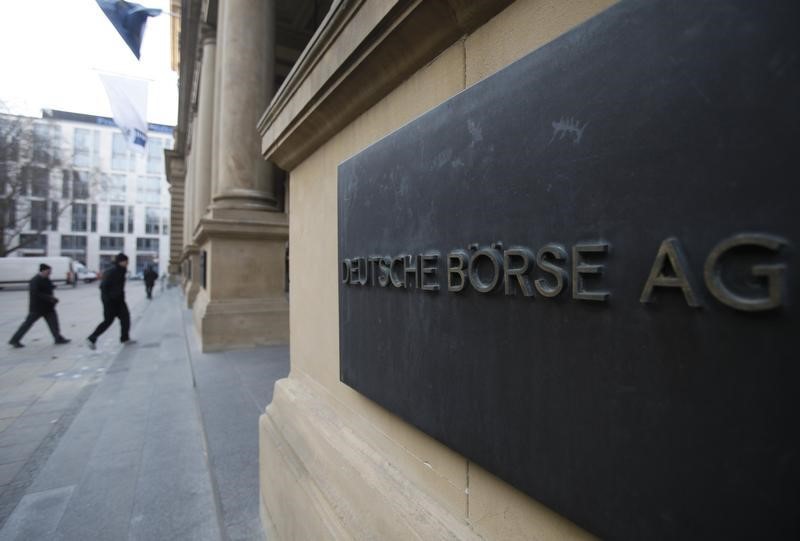(Bloomberg) -- The City of London is getting another reminder of how fraught post-Brexit dealings with the European Union could get in the $1.5 trillion-a-day market for exchange-traded derivatives.
Lobbyists for Deutsche Boerse (DE:DB1Gn) AG, Euronext NV and other exchanges are calling on EU officials to reverse a key part of the bloc’s trading law called open access -- a policy that has wide support in London. The rule allows derivatives to be traded on one exchange and cleared at another.
The European Commission “should check very carefully if the ‘open access’ provisions will indeed work as intended in a new post-Brexit environment,’’ said Markus Ferber a leading lawmaker on recent market reforms known as MiFID II. “With the trading and clearing landscape changing so much in light of Brexit, a review of those provisions is only sensible.’’
If open access were revoked, it would leave traders tied into dealing and clearing at one venue. Supporters such as the London Stock Exchange Group (LON:LSE) Plc have said these silos concentrate risks and discourage competition.
The question of whether to proceed with open access highlights the split in the derivatives industry on the need for competition for clearing services. Some EU countries are also using Brexit as an excuse to protect their national champions.
Open access was delayed at the start of the MiFID II reforms until mid-2020 after Germany’s top regulator initiated a postponement that others followed. The German Finance Ministry is now consulting on changes to MiFID II.
Lobbying Letters
Germany’s dominant market operator Deutsche Boerse, which operates a derivatives trading venue and clearinghouse, has long opposed the provision, while the London Stock Exchange Group Plc has been among its most vocal supporters.
Deutsche Boerse declined to comment, but said it had responded to the German Finance Ministry consultation.
The Federation of European Securities Exchanges, whose members include Deutsche Boerse and Euronext, made the case for reconsidering open access in a letter to the ministry. It said that open access for exchange-traded derivatives would create “unresolvable issues’’ for both trading venues and clearinghouses, while creating operational inefficiencies that could harm financial stability.
That sets up a battle with some of the world’s biggest brokers, who are important participants in the listed derivatives market and feel the pain of price pressure caused by a lack of competition.
A lobby group for brokers including BGC Partners Inc., and TP ICAP (LON:NXGN) Plc sent a letter to Germany, dated March 15 and seen by Bloomberg News, asking regulators to push ahead with open access. It wants to break what it said were “monopolies” at some large exchange operators.
“Open access will give market participants enhanced choice in trading and clearing services, thereby avoiding the concentration of risk presented by closed market infrastructures, and leading to lower costs,’’ the letter said.
(Updates with chart.)
